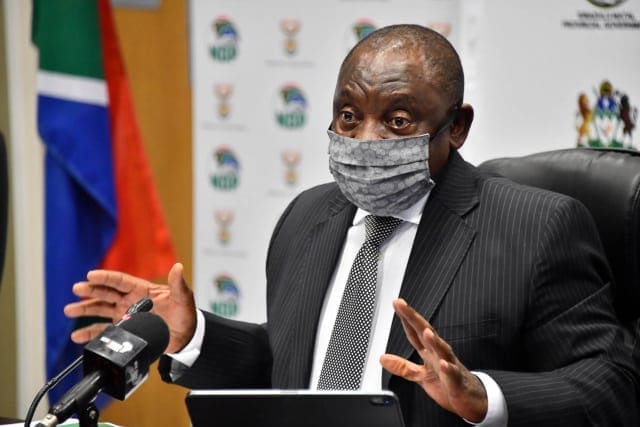As the country has lifted the lid on some of the economic activity and people are starting to move around, South Africa must brace itself for the increase of COVID-19 infections.
This was the key message delivered by President Cyril Ramaphosa during a visit to KwaZulu-Natal on Tuesday to assess the province’s COVID-19 response.
The President was engaging with the provincial government and stakeholders on the province’s response strategies and progress being made to flatten the curve of the Coronavirus pandemic.
He said Level 5 lockdown had done a great deal to put the brakes on the wave of infections that was meant to go up exponentially. However, the lockdown managed to level it off.
“In that regard, we were able to ensure that with social distancing, chances of infections are lessened and that has paved us the way. In a way it was getting us prepared for a spate of infections that are going to continue rising,” he said.
While President Ramaphosa said he was satisfied that KZN had done a great deal to prepare for the challenge, the President said he would still like to see the province getting more ICU beds in order to deal with what is still yet to come.
“We’re informed that the worst is still coming. We are going to get more people who are infected,” he said.
“But the important thing is that we need to ensure that we lessen the pace in which these infections are going to take place.”
He said this will be done by getting ready by these quarantine facilities, ensure that people continue with social distancing, people continue to wash their hands, and informed through our actions wearing masks and limiting numbers of people who gather in social spaces.
“KZN is very highly populated. Professor Karim and his colleagues who are dealing with this disease in a scientific view inform us that as South Africa, we must expect that the rate of infections is going to increase,” he added.
Professor Salim Abdool Karim chairs the government’s advisory committee on coronavirus and is a leading clinical infectious diseases epidemiologist.
President commends Minister Mkhize
President Ramaphosa also heaped praises on how Minister of Health, Dr Zweli Mkhize, has guided the country through the COVID-19 pandemic.
“What he has been doing is truly amazing… giving guidance and leadership and just intellectual capability and scientific as well.”
He said the words of praise coming from international bodies such as the World Health Organisation have been because of Mkhize’s stellar performance.
“I’m not saying this because I’m South African or president but, when they look at us, they truly see a shining example of how countries should have responded to the challenge of COVID-19,” he said.
“We’re by no means out of the woods. We still deep in the woods,” he added.
But, he said the way that Mkhize has led the country has been nothing short of amazing.
“Also, the important thing is that we have relied on science. We haven’t been flying by the seat of my pants and thumb sucking everything. The fact that he enlisted top-class scientists and doctors as we saw, led by Prof Karim, has positioned us very well because we haven’t been sending out confusing messages.”
Economy under great stress
President Ramaphosa also applauded the managing of the State of Disaster, led by Co-operative Governance and Traditional Affairs Minister, Dr Nkosazana Dlamini-Zuma.
While he is pleased by these aspects, he said this raises an important hurdle and that’s the economy.
“The way we have responded to the challenge is the way we should respond to the next challenge we’re going to face, the economic way.”
He acknowledged that COVID-19 brought the economy to its knees.
“Our economy as we speak now is under a great deal of stress and challenge. We now must collectively respond on how we’re going to deal with the economy.
“COVID-19 has dealt a huge blow to our economy and we now need to address that economy because the economy sustains lives and our lives as South Africans revolves around economic activity and we need to focus on that.”
New economy post-COVID-19
He said the pandemic gives South Africans an opportunity to look at how the country reconstructs the economy post-COVID-19.
“I’m characterising the Coronavirus after effect as being like a post-war situation. We’ve been fighting the invisible enemy and we must now start planning for a post-war situation.”
He said this gives rise to a number of challenges and opportunities that need to be addressed.
“We must begin to put in place the pillars of the new economy. We cannot continue in the same old way, possibly identifying new sectors going forward and rebuilding those badly affected by COVID-19.”
He forecasts that many people will lose their jobs and therefore the government needs to find and create jobs.
“We need to come up with a clear building strategy and the building blocks are already in place and we need to put them together.”
He envisions an economic future where growth is inclusive and empowering to the young people and women and blacks.
“Radical economic transformation must underpin the economic future and we will need to craft that going forward.”
He said this also requires government and state-owned entities to function in a way that is developmental, ethical and innovative. – SAnews.gov.za

